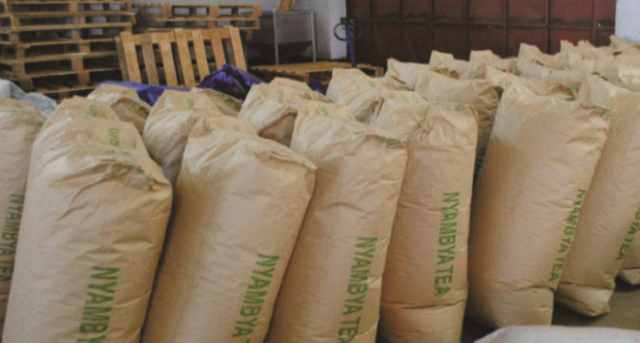
Uganda needs tea policy
Export earnings from Ugandan tea have been declining over time. Recent data from Uganda Bureau of Statistics indicates that in 2014, Uganda tea exports earned $30 million. That is a 70% drop from 2010 when tea export earnings were worth $95.54 million.
Tumwesige says to improve quality and cut its losses, Uganda’s tea sector needs to enact a transparent legal framework to guide its operations and gain international recognition as a tea growing nation. He says some dealers are illiterate and uncontrolled, the tea is poorly transported, and the marketing of Ugandan tea is poor.
According to Tumwesige, the Ugandan tea sector also suffers due to high input costs and unfair competition.
“Uganda is not known for tea producing because all our tea is auctioned and sold as Kenyan tea at Mombasa Auction,” Sabiiti said, adding this has been happening for years and government has failed to end it.
Uganda produces around 50,000 tonnes of tea per year and, 95% of it, is sold at Mombasa Auction in neighboring Kenya. Only 5% is either marketed locally or directly exported by private companies from Uganda.
Tumwesige says Uganda needs to copy from other countries trading in Mombasa and put in place a workable legal and policy framework to pave way for institutions that can regulate the sector.
“Uganda should have done that yesterday,” he says.
Recent data from Uganda Bureau of Statistics, which cites 2010 figures, says Uganda has 17 paid up members of Uganda Tea Association (UTA) comprising of about 20,000 smallholder tea farmers organised under five tea processing factories; Mpanga, Buhweju, Mabale, Igara and Kayonza as out-growers with the rest being private tea estates.
Beth Kabahwe, an out grower from Kyenjojo, Western Uganda, also has concerns about how the lack of regulation is affecting tea prices at the farm level. She says she feels cheated when she goes to the factory to buy a kilogram of made tea at Shs6, 000 when the same factory buys her raw tea at the farm at Shs400 only.
“I think government can help us to market our tea at fair prices,” she told The Independent.
 The Independent Uganda: You get the Truth we Pay the Price
The Independent Uganda: You get the Truth we Pay the Price


